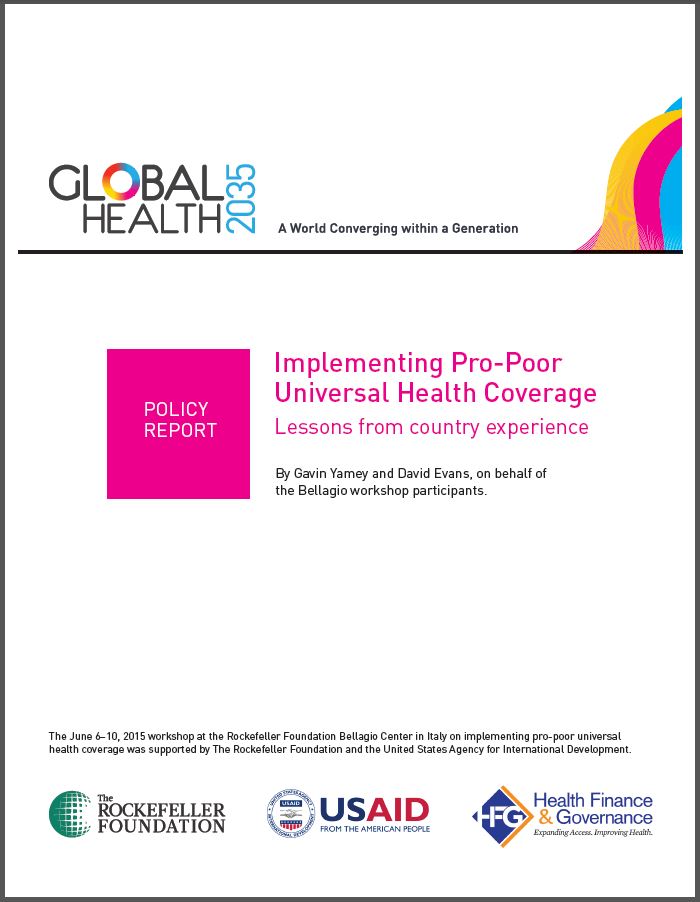Policy Report: Implementing Pro-Poor Universal Health Coverage – Lessons from Country Experience
Categories: Publications, Universal Health Coverage
Resource Type: Brief
Authors: Gavin Yamey and David Evans
Published: November 2015
 Resource Description: Universal health coverage (UHC)—ensuring that everyone has access to quality, affordable health services when needed—can be a vehicle for improved equity, health, financial well-being, and economic development. In its 2013 report, Global Health 2035, the Commission on Investing in Health (CIH) made the case that progressive (“pro-poor”) pathways towards UHC, which target the poor from the outset, are the most efficient way to achieve both improved health outcomes and increased financial protection (FP). Countries worldwide are now embarking on health system changes to move closer to achieving UHC, often with a clear pro-poor intent. While they can draw on guidance related to the technical aspects of UHC (the “what” of UHC), such as on service package design, there is less information on the “how” of UHC—that is, on how to maximize the chances of successful implementation.
Resource Description: Universal health coverage (UHC)—ensuring that everyone has access to quality, affordable health services when needed—can be a vehicle for improved equity, health, financial well-being, and economic development. In its 2013 report, Global Health 2035, the Commission on Investing in Health (CIH) made the case that progressive (“pro-poor”) pathways towards UHC, which target the poor from the outset, are the most efficient way to achieve both improved health outcomes and increased financial protection (FP). Countries worldwide are now embarking on health system changes to move closer to achieving UHC, often with a clear pro-poor intent. While they can draw on guidance related to the technical aspects of UHC (the “what” of UHC), such as on service package design, there is less information on the “how” of UHC—that is, on how to maximize the chances of successful implementation.
Motivated by a shared interest in helping to close this information gap, a diverse international group of 21 practitioners and academics, including ministry of health officials and representatives of global health agencies and foundations, convened at The Rockefeller Foundation’s Bellagio Center for a three-day workshop from July 7–9, 2015. The participants shared their experiences of implementing UHC and discussed the limited evidence on how to implement UHC, focusing on a set of seven key “how” questions from across five domains of UHC.
Download
Related:
- Background Report: What Steps Are Countries Taking To Implement Pro-Poor Universal Health Coverage?
- Policy Brief: What Steps Are Countries Taking To Implement Pro-Poor Universal Health Coverage?
- Practice Brief: Implementing Pro-Poor Universal Health Coverage – Lessons from Country Experience
- Journal Article: Implementing Pro-Poor Universal Health Coverage



